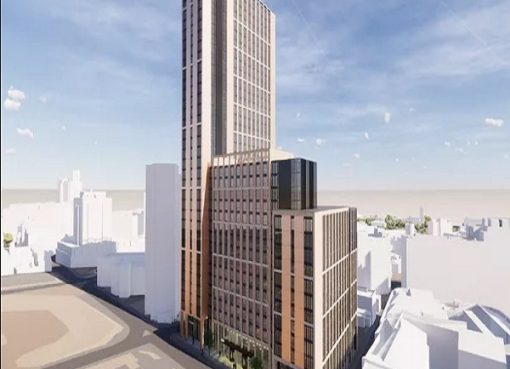The Supreme Court on Monday struck out the suits filed by Lagos and Ekiti state governments challenging the validity and constitutionality of the Virtual court sittings procedure for been speculative in nature without any valid cause of action.
A seven-member panel of the Supreme Court led by Justice Bode Rhodes-Vivour declared that virtual court sittings are constitutional.
The court took the decision after both states withdrew the suits filed against the Attorney General of the Federation and the National Assembly.
The apex court warned that any Judge who refused to sit via virtual proceedings should be reported to the National Judicial Council (NJC) for disciplinary action.
Lagos State had in its suit marked ‘’SC/CV/260/2020, asked the Supreme Court to determine whether having regard to Section 36(1), (3) and (4) of the 1999 Constitution (as amended) use of technology by remote hearings of any kind, whether by Zoom, Microsoft Teams, WhatsApp, Skype or any other audiovisual or video-conference platform by the Lagos State High Court or any other Courts in Nigeria in aid of hearing and determination of cases are constitutional.
Canvassing arguments for the state on Monday, the state Attorney-General, Moyosore Onigbanjo, SAN, told the court that the suit raised a cause of action which is the interpretation of the constitution as to whether the courts can accommodate virtual court proceedings.
He further argued that the National Assembly does not have the powers to regulate the practice and procedure of courts as such powers are only donated to state Chief Judges.
The totality of his argument is that the case by his state was to prevent a situation where, after virtual sittings are conducted, they would be declared unconstitutional as it was the case in Orji Kalu case.
‘It is the fear by some judges that their decisions may be declared a nullity at the end of the day like in the Orji Kalu’ case.’
But his was not able to riggle out of the barrage of questions posed to him by the panel as his explanations were not convincing to them.
The apex court which insisted that the suit was premature and speculative in nature, declared that there was no cause of action.
Justice Olabode Rhodes-Vivour, who led the seven-man panel said: ‘Just let us wait for the National Assembly whether what they will come up with go against the practice direction issued by Chief Judges of the states and the National Judicial Council (NJC) on virtual sitting.’
Justice Vivour said it is after the National Assembly has passed its pending bill seeking to include virtual sitting in the Constitution can anybody challenge the constitutionality or otherwise of such enactment and whether it violates the powers of heads of courts to regulate proceedings.
He said: ‘As at now, virtual sitting is not unconstitutional. Honourable Attorney-General (referring to Onigbajo), go and tell your Chief Judge to ask the judges to continue to sit virtually if it is convenient for them.
‘Any judge refusing to sit should be taken to the National Judicial Council for necessary action.
‘Somebody’s right must have been infringed, until and unless that has taken place, the action remains speculative. Please, let’s allow our laws to develop naturally. The developed countries you are referring us to did not arrive at where they are overnight,’ Justice Vivour held.
Another member of the panel, Justice Dattijo Mohammed held that there is no cause of action yet because no one has claimed that his right has been breached.
‘Somebody’s right must be breached by what the National Assembly is able to come up with before you can come to court,’ Justice Mohammed said.
In her contribution, Justice Amina Augie told Onigbajo that: ‘Learned AG, it is a fundamental law, we do not act on speculation. What you are doing now is speculative.’
Yet another member, Justice Olukayode Ariwoola posed: ‘Why don’t you wait for the National Assembly to come up with what they are doing, then you can come and challenge it if you are not comfortable.
‘You have a choice either to ask that your matter be adjourned sine die until after the National Assembly passes its law or you withdraw your case.’
On his part, Justice Ejembi Eko said the suits are premature and speculative.
Justice Eko said by virtue of the provision of Section 168(1) of the Evidence Act, the practice directions by courts heads on virtual proceedings enjoy the presumption of regularity until they set aside.
‘Can we speculate the final position that will be taken by the National Assembly at this stage? Is the National Assembly the only organ to amend the constitution? What powers do you have to prevent the National Assembly from doing their job under section 9 of the constitution?
‘Does the act of the Senate stop the court from enjoying the provisions of section 274 of the constitution? The sooner we stop bothering the court with speculations, the better for us. This action of yours is speculative in nature.
‘We cannot say, at this stage, whether or not virtual sitting is constitutional,’ Eko said.
In the case of Ekiti State, the Attorney-General of Ekiti State, Olawale Fapohunda, SAN, whose case was later called, said the suit by his state was to clear the uncertainty about the constitutionality or otherwise of virtual court sittings.
Fapohunda said judges in his state are reluctant to sit and conduct virtual proceedings because they are afraid that their decisions and proceedings could be declared unconstitutional on appeal.
But on this point, another member of the panel asked: ‘Is the anticipated fear by judges itself not a clear breach of the practice direction and rules of court?’
Having expressed this position, the two states accordingly withdrew their cases.
The seven-man panel then struck out the cases.
Source: The Sun










